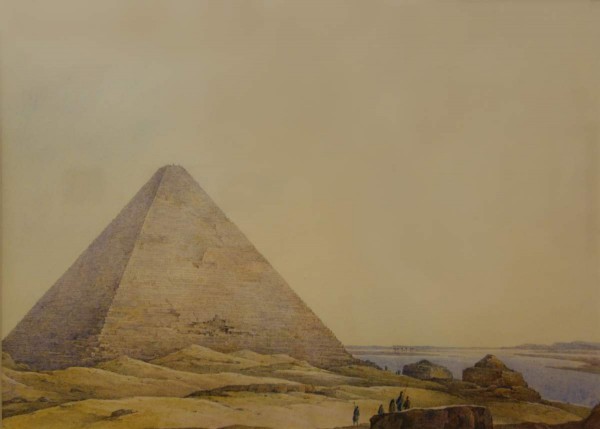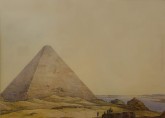Great Pyramid of Giza
From the album of drawings. 1842
- Indian ink, nib and watercolours on paper. 19,5 × 26,7
- Р-32890
- Period Early 19th century
- CategoryLandscape
- Share
In September 1842, the Chernetsov brothers — Nikanor, Gregory and Polycarp (1822–1842), avid travelers, left Italy and headed to the African continent. The trip to Egypt lasted a month and a half. The artists managed to visit the main cities of the country — Alexandria, Cairo, sail along the Nile, get acquainted with the most important monuments of ancient Egyptian history: the pyramids in Giza, the column of Pompey, the obelisk of Cleopatra and the tomb of Cheops, which, despite the danger, they decided to climb in search of the best vantage point, which they did not fail to note in the notes. The Chernetsovs did not limit themselves exclusively to the study of ancient monuments, but combined «the news of the present and memories of the past». They constantly visited the Russian consul Kremer, the Egyptian Pasha Mohammed Ali, the Patriarch of Alexandria; learned the features of the everyday realities of Eastern life. The brothers recorded their impressions from the trip, vivid and varied, with their inherent habit of carefully recording everything that happened, in a handwritten journal, where descriptions of the events were accompanied by drawings. And this was only part of the materials dedicated to the trip. Nikanor and Grigory Chernetsov executed dozens of easel drawings and watercolors that reflected everything they saw in Egypt, a large corpus of which is kept in the collection of the Russian Museum.

